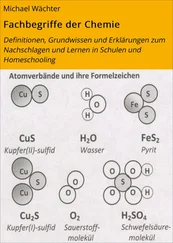“Hydrogen bonding,” he mumbles. “He just wanted to know-“
“Okay, okay,” Lizette says, “stop, we surrender. Turn off your Lethal Boredom Ray.”
After school, he whips through his calculus, history, and music theory homework so he can get to work in the garage. Karl’s parents have always worked long hours, and from toddlerhood on, he has learned to entertain himself with projects of his own devising. In fourth grade, he built a Hamster Generator, which enabled little Hamilton to power his own night-light by running on his wheel. In ninth grade, he concocted a thermosensitive paint, which turned silvery gray in the heat and black in the cold; his parents let him coat the shingles with it, and now the roof absorbs the sun’s warmth in winter and bounces it away in summer. (Unfortunately, the U.S. Patent Office wrote back that Armine Fodek of Chillicothe, Ohio, had a similar patent pending.) At present he’s working on his most ambitious project to date-but he refuses to tell a soul what it is until he finishes and tests it. Suffice it to say that this project blends elements of fluid mechanics, combustion, and sound, and that working on it absorbs him completely.
While tinkering in the garage with an ignition device, adjusting the flame size, he hears a loud motorcycle engine and looks outside. It’s his neighbor Norbert, the apprentice electrician, coming out of his parents’ garage. A girl holds on to his waist from behind, orange hair flying out from beneath her helmet as they roar away.
When the noise fades away, he looks at the pipe wrench in his hand and hears Cara again: Is your life so wonderful the way it is?
His father stops in the garage on his way inside. Karl quickly blows out the flame and covers it with the small, galvanized pail he keeps at hand for this purpose, then pulls the paint-stained Goofy and Pluto sheet over the workbench.
“I just hope,” Dad says, “that whatever it is can’t be hijacked by enemy combatants and used to wreak havoc on our streets.”
“No comment.”
(At least Dad is semifunny, unlike Ivan Fretz, who threw out a mocking guess last week while walking the family Labradoodle: “A robot girlfriend?”)
Over a late dinner, Karl’s parents cheerily discuss the family’s college touring schedule: Princeton and Penn one week; Yale to Brown to Harvard the next, with a possible stop at M.I.T.; and Columbia the first afternoon they can both take off work. The issue of Stanford inspires some teasing. “You wouldn’t really want to put that many miles between us, would you?” his dad asks.
Karl thinks it over. His feelings are mixed.
“I don’t know,” he says. “What’s it worth to you to keep me on the East Coast?”
His mom cuts the joking short. “You need to prepare some questions in advance. How accessible the professors are, class sizes, how happy the students are in general. And you should decide if you want to sit in on a class at each school.”
“It’ll be good to spend some time together,” his father says. “For once in our hectic lives.”
Karl sort of agrees, but he also wonders how it’ll be, spending several entire days traveling around with his parents. Part of him already wants to scream, Let me out! I’ll do anything! Just get me out of this car!
Since he can’t share that with them, he raises a different issue. “I don’t think those schools are going to take me. All I have is grades.”
His father hunches closer to the center of the table, as if spies from a competing family might be listening in. “I talked to a private college adviser,” he confides. “According to her, some universities would consider your independent work an acceptable substitute for standard extracurricular activities. If it’s impressive enough.”
“What independent work?” Karl practically spits.
“Your Mystery Project. What else?”
Just as he feared.
“You’ll finish before it’s time to apply, right? You’ve got”- he counts on his fingers-“seven months.”
“Sure, I’ll finish, but-that’s not-that’s-personal. I’m not doing it to impress a college.”
“Perfect!” his mother says, and squeezes his hand. “You’re driven by your own passionate curiosity, not by a desire for self-advancement. If they’re impressed, that’s just…”
“Incidental,” his father offers.
“Gravy.”
“The icing on the cake.”
Could they be happier with their brilliant son? Not much. In their different ways, they have both placed all of their hopeful ambition squarely on Karl’s shoulders. His father, a tax lawyer, went to a state college near the Canadian border and has always felt dwarfed, status-wise, by his Ivy League partners. His mother, right-hand woman to Manhattan real estate developer Paul Tralikian, has an M.B.A. from Wharton but considers herself the dimmest light among her siblings, a neurosurgeon, a judge, and a congresswoman. By a happy accident of fate and biology, Karl’s brain turned out to be a more powerful engine than either of theirs, and they have reason to believe (ecstatically) that he will achieve more than either of them ever hoped to.
And he knows it.
Is your life so wonderful the way it is…
Lying in bed in the dark, he analyzes the situation this way:
His parents want him, always, to stay ahead of the pack. But ahead of the pack means all by himself, out there in front of everybody else, looking over his shoulder at people who resent him for being so far beyond them. Is it right to strive to do better than everyone else? Isn’t it a little… greedy? Truth is, the whole Number One Student thing disgusts him. Much more appealing than any superachiever are the graceful, confident, beautiful ones-people like Cara and Blaine.
He remembers her hand on his-cool, and so soft-and her amazing green eyes, and the thin-lipped, mocking smile. The fact that it was pure manipulation doesn’t stop him from wanting more.
Usually, he falls asleep within ninety seconds of lying down. Not tonight, though. Not even close.
But each new day is a fresh start, and even with crusty gunk cementing his eyes shut, Karl accepts the sunshine on his face and gladly observes his spirit rising from the muck of yesterday. No, his life isn’t perfect-but what does that have to do with cheating? Not a thing.
Even the dull routine of school feels comforting today. Yes, it’s a strange and absurd place-with pepless pep rallies, longer hours spent preparing for standardized tests than on any actual subject, teachers who act like exhausted bureaucrats waiting to collect their pensions, and a principal who hasn’t been seen in months (rumor has it he suffered a nervous breakdown long ago and the assistant principal has him locked away in an attic storeroom)-but, viewed with the right distance, the absurdities can be seen as amusing.
For example: the assistant principal calls an assembly during seventh period. Recent assemblies have featured a rotund dietician who lectured them on the perils of junk food, and a uniformed police officer who tried to instill in them a righteous terror of scooters, skateboards, and Roller-blades. (“Gore and mayhem on wheels,” in his words.) You never know what kind of preposterous harangue you’re in for at one of Mr. Klimchock’s assemblies.
“He’s going to announce a new dress code,” Jonah predicts. “Shorts in the winter and plastic sweat suits in the summer.”
Lizette shakes her head. “I say he’ll make room for more test prep by cutting out chemistry and history.”
Though too sleepy to contribute, Karl enjoys listening to their quips. That is, until Klimchock opens his mouth.
“Cheating,” the assistant principal says, breathing into the microphone, deep as death.
Читать дальше












